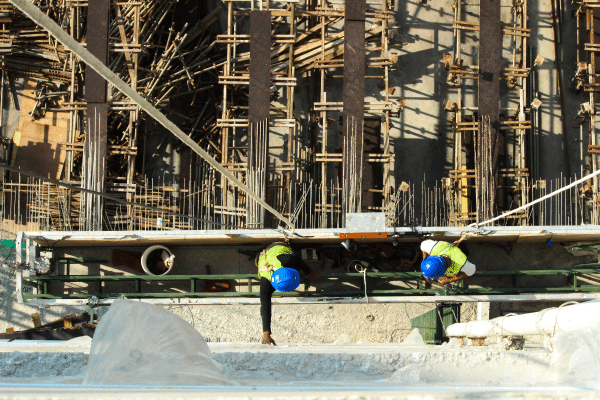Pros and Cons of Studying a Certificate 3 in Carpentry

The Certificate III in Carpentry (CPC30220) is recognised across the country as one of the best trades programs you can do.
As a vocational training program that you do in conjunction with a 3-year carpenters apprenticeship, you graduate as a qualified carpenter.
So what are the benefits and downsides of studying a Certificate III in Carpentry?
Let’s take an in-depth look at the pros and cons of carpentry to help you work out whether this career path is right for you..
Pros
1. You don’t need to finish school
If you’re not the type of person who likes to learn from a desk, then one of the benefits of carpentry is that you don’t need to finish secondary school.
Whether you’re currently in secondary school or you already left early, you can still do a Certificate 3 in Carpentry.
The reason for this is because the Certificate III in Carpentry has no formal education entry requirements.
The only requirements are that you are 16 years old or more, can speak English well enough to work in Australia, and have basic maths skills.
But if you want to feel better prepared for an apprenticeship, you could do the Certificate II in Construction Pathways (CPC20220) (but it’s not essential).
2. You can earn while you learn
While doing your Cert 3 in Carpentry you’ll be working as a carpenter’s apprentice.
This means you’ll be working alongside experienced carpenters learning the skills as you do the job.
As a carpenter’s apprentice you’ll be getting paid just like any other employee.
Many people think this is one of the top benefits of carpentry, because you can earn enough money to support yourself while getting a qualification.
3. It’s affordable
A Cert 3 in Carpentry is not only much cheaper than a university degree, it’s also discounted for eligible students.
As part of the Skills First program, the Victorian Government pays a big chunk of the cost of the course.
This is because the government really wants to encourage more people like you to become skilled tradies in construction by offering lots of support and funding.
The subsidies, loans or grants available are always changing, so be sure to contact one of our course advisors to find out what’s available and whether you’re eligible.
Cons
1. You’ll be working “on the tools”
There are a lot of different roles within the construction industry ranging from unskilled labouring through to advanced project management.
Trades work like carpentry falls somewhere in the middle because you need skills and training to do it but it’s still very hands on.
When it comes to working as a tradie “on the tools”, the pros and cons of carpentry depend on what you prefer.
Have a think about whether working “on the tools” is a lifestyle you’d love, or whether it’s not for you.
Tip: Want to get off the tools?
If you’d rather work “off the tools” you might prefer the role of a site supervisor, construction manager or business owner.
In a role like this you won’t be working with your hands as much and you might be supervising or managing other trades people like carpenters.
To get off the tools and into a supervisory role, you’ll need to get a qualification like:
Do this certificate IV to get qualified to manage low rise single storey residential construction projects.
Do this diploma to get qualified in managing midrise residential projects up to 3 storeys tall.
2. It can be cold…or hot…or wet
As a carpenter’s apprentice or a fully qualified carpenter, you’d work on various job sites building things like houses.
This also means you’ll be out in the elements in all different types of weather.
Construction work on a building site can get hot in the summer and cold in the winter.
While this can be considered a downside, you might not mind this so much.
A lot of carpenters prefer working outdoors compared to working in a stuffy office.
And with the right sun protection and appropriate cold weather gear, you can stay comfortable no matter the season.
Pros and cons of carpentry
The only way to weigh up the pros and cons of carpentry, is by deciding what works best for you.
If you never liked sitting at a desk and find it extremely satisfying to build things with your hands, then the Cert 3 in Carpentry could be perfect for you.
Thinking of doing a Certificate III in Carpentry (CPC30220)? Chat to a course advisor about your options on 1300 534 363 (LEGEND) or request a callback today.

